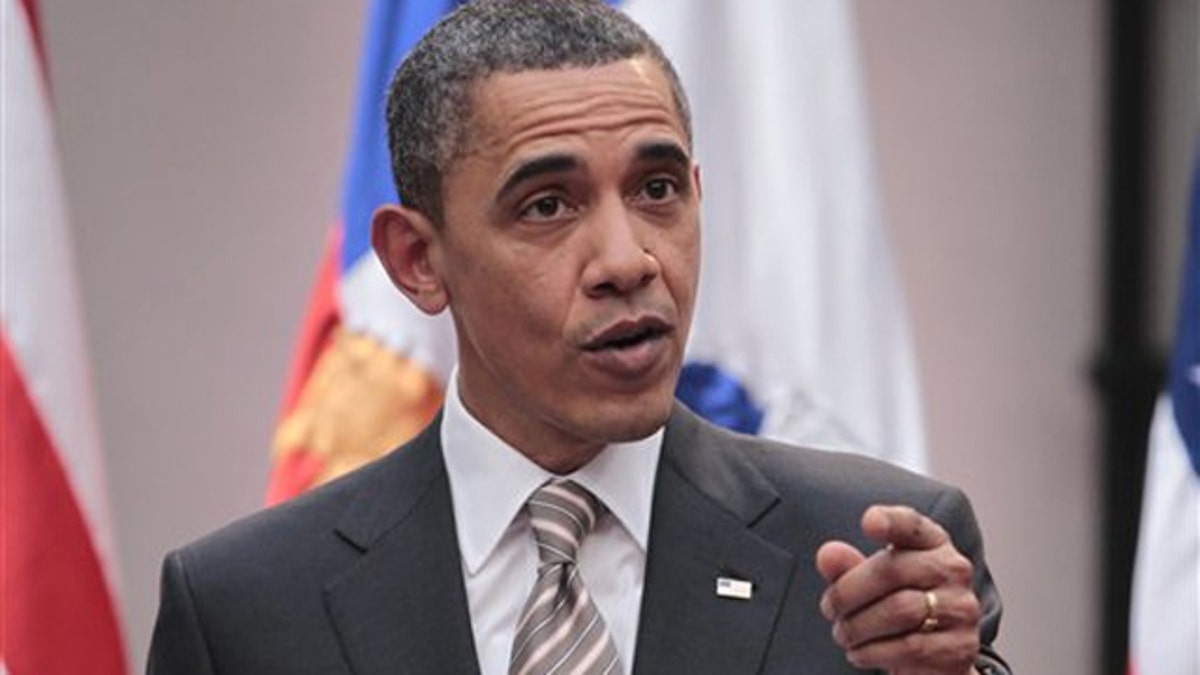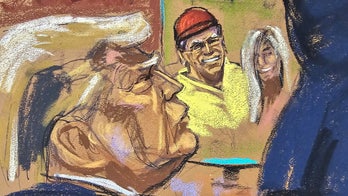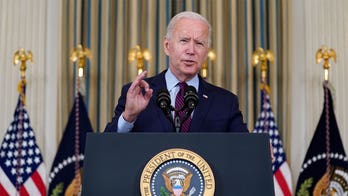
President Obama gestures during a joint news conference with Chilean President Sebastian Pinera March 21 in Santiago, Chile. (AP)
President Obama reiterated Monday that he wants Libyan leader Muammar al-Qaddafi gone, but stressed that the ongoing missile strikes in support of a no-fly zone are not meant to achieve that result.
Rather, the president suggested the United States and its allies would continue to use non-military "tools" such as sanctions to pressure Qaddafi to leave.
"It is U.S. policy that Qaddafi needs to go," Obama said, during a brief press conference alongside Chilean President Sebastian Pinera in Santiago. "We've got a wide range of tools in addition to our military efforts to support that policy."
The president also said he expects the United States to transfer leadership of the operation "in a matter of days," not weeks, to other coalition partners.
Obama has faced pressure from lawmakers on Capitol Hill to clarify the United States' objectives in Libya, given that missiles from the United States and its allies have rained down on military targets in the country since Saturday. Some have questioned how the administration can on one hand call for Qaddafi's ouster but, on the other, claim the military strikes have nothing to do with that goal.
Asked Monday about the possible disconnect, Obama said he saw none.
"I think it's very easy to square our military actions and our stated policies," Obama said.
He said the United States and its allies are only launching strikes and enforcing a no-fly zone to protect the Libyan people from Qaddafi and "stop any potential atrocities."
"We are going to make sure that we stick to that mandate," Obama said.
Outside of that, the president said sanctions and other "tools" can be used to pressure Qaddafi, "and we will continue to pursue those."
Still, U.S. Army Gen. Carter Ham said Monday that Qaddafi could ultimately remain in power, though he said that would not be ideal.
The open-ended outcome has led to anxiety among leading lawmakers on both sides of the aisle. Several have criticized Obama for not first seeking congressional approval for the military strikes.
House Armed Services Committee Chairman Buck McKeon, R-Calif., warned that a failure to define the political objectives "risks entrenching the United States in a humanitarian mission whose scope and duration are not known at this point and cannot be controlled by us."




